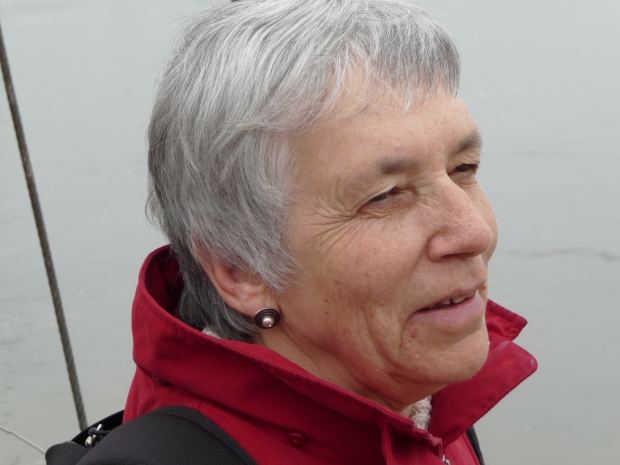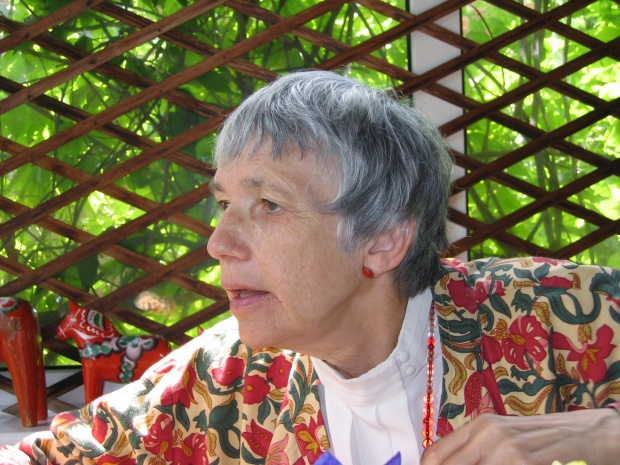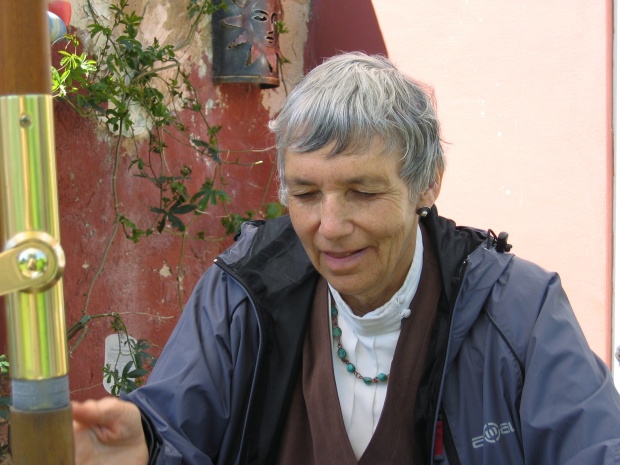Posts Tagged social history
Leonore Davidoff: An Obituary by Paul Thompson
Posted by stories of essex sociology in Former staff, Obituaries on November 13, 2014
Leonore Davidoff: An Obituary
by her life long colleague Paul Thompson
Leonore Davidoff, who died on 19 October 2014 at the age of 82, is internationally recognised as a key pioneer of gender studies in history and sociology. Her book Family Fortunes (1987), written jointly with Catherine Hall, is a brilliant demonstration of the new insights which gender perspectives can yield.
Leonore was born in New York in 1932, but her later childhood was in New Canaan, a small Connecticut community of white Protestants in which a family of Jewish immigrants from Eastern Europe stood out, despite having become believers in science rather than religion. This was an early lesson in marginality.
Leonorre’s family were striking professional achievers. Her father became a New York surgeon, her brother and her older sister were also doctors, and her younger sister a museum director married to a psychologist. Leonore was the exception, seen in the family as a rebel because she did not want to become a doctor.
Leonore’s father’s father had been a Latvian shoemaker and ritual butcher and the family then lived in an earth-floored hut behind the butchery; and in New York he again set up a tiny cobbler’s shop. Leonore’s father himself started as a factory worker, but won the support of a manager who paid for him to go to medical school at Harvard – where he met Leonore’s mother. He went on to become a distinguished surgeon. However, as a child, Leonore never found him easy to talk to.
By contrast, her mother was a powerful model, touch and energetic, `a towering presence’ as Leonore put it, who had run the Hillel Society at college and hence met her father. She subsequently took motherhood very seriously, insisting that in 1939 they move the family home from New York to the small rural town of New Canaan in Connecticut. She joined the Child Study Association and its Book Committees, so she would get unpublished books, bring them home, and she write reviews on the basis of what the children said. She also became politically active, and worked for the League of Women Voters. Much later, having become increasingly frustrated by being defined simply as a wife, and did eventually break out, becoming a feminist as soon as the Women’s Movement started in around 1970. She started a programme for older women, and founded “Woman’s Place” in Connecticut. But even earlier, she passed on a form of feminist consciousness to Leonore, above all in her belief in the need for women to be well educated.
Music was part of the family culture and was one of Leonore’s lifelong enthusiasms. Rather than learning the piano, she took up the flute. At 17 she broke with the family’s scientific tradition by going to Oberlin College to read music. This proved an important step. She found herself part of a radical culture, living in co-operative housing. She soon switched from music to sociology and carried out her first research project, a community study of Greenbelt, Maryland. She met and became close to the future radical historian of slavery George Rawick. She said, ‘It was a very good experience, getting that far away from the family’.
At 21, partly to keep that family distance and partly because she then saw England as ‘the white hope of socialism’, she decided to go still further away for her graduate studies, to England. She went to LSE to take an MA. She found the social atmosphere ‘intimidating’, and there were few other women there. With David Glass as supervisor, she wrote a substantial thesis on married women’s employment. It was never published. At that time it was hard to related to mainstream sociological or historical thinking, to solve the theoretical issues, or to see where to take it. There was no Feminist Movement to relate to, and she could not see any future in it.
Meanwhile she had met David Lockwood, and in September 1954 they married and set up house together. Leonore worked briefly for Charles Madge on the very male culture of redundant car workers. But then with the births of their three sons from 1956, for some years she lost any research institutional basis and her life revolved almost wholly around her new family.
Theirs was a remarkable marriage. Unlike with so many sociological couples of the following generation, they remained together lifelong, for almost 60 years, with David dying only months before her. More surprisingly, they never took up the sharing of gender roles which became so common with younger colleagues. Except for an American element in Leonore’s cooking, they operated much more in the style of the traditional working class Yorkshire families of David’s childhood, with the mother seeing to the house, cleaning and cooking, and also providing emotional backing for her males. Leonore was a loyal wife and a devoted mother, raising sons who each became an educated professional: Ben an economist, Matthew in development studies and Harold in water management. Later she became close to her partners, Michaela, Sue and Kishti, and developed special relationships with her grandchildren.
Leonore cared deeply for David, handling his sadnesses, providing food for him – even later when she went away travelling. She admired him especially as a celebrated intellectual. But unlike several couples they knew – such as Joe and Olive Banks, or David and Ruth Glass – as a couple they did not form an intellectual partnership. David never found space for gender in his theoretical view of the world – as he put it, ‘That’s not something that’s been a central interest’ So Leonore once again had to create a space for herself as a researcher and intellectual independent of the family.
For several years this seemed a daunting task. They moved to Cambridge in 1961 when David was appointed to a Lectureship. The atmosphere was then hostile to sociology and Leonore was further marginalised as a faculty wife. She describes this as ‘a very difficult time’ in which ‘I was very very isolated’. Nevertheless, at this time she made some important friends – Jean and Frank Bechhofer, and the anthropologist Esther Goody – and through developing a connection with Lucy Cavendish College met some of the older generation of British academic women.
It was only in 1968, when David was appointed a professor in the booming new Department of Sociology at Essex, that she was able to find an understanding circle of colleagues and re-launch her academic career. Essex has always been a wonderful base’. The department from the start had included women staff (including briefly Diana Leonard) and was very quick to respond to the new interest in sexual divisions at the end of the 1960s. Leonore had devised a project on domestic servants and I was able to help her secure a Nuffield Foundation grant for this, so that she became a part-time research officer. She was to remain at Essex for the rest of her career, from 1975 as a lecturer and from 1991 as a Research Professor, and finally after retirement as Professor Emerita.
Leonore was interested in domestic service because it provided a link between work and the family, which was to be one of her continuing research teams. At the same time she was increasingly attracted by historical perspectives. Her enthusiasm fed by reading novels and visiting David’s Yorkshire. Initially while she was writing it was still difficult to find an understanding audience for her work, so she talks of explaining it to the dog on her walks. In her monograph from the project that became The Best Circles: Society, Etiquette and the Season (1973), she wrote to explain why the irrationalities of domestic service proved so long-lasting, and she came to see the explanation as symbolic – in that sense, `quite sociological’: a bridge between sociology and history.
However, by the early 1970s the situation was changing rapidly: partly through the History Workshops, the Women’s Movement had become translated into Women’s History, and from this point onwards there was always a keen audience for her work. Leonore became a feminist activist herself, running a Feminist History Group in London and helping to set up the Women’s Research and Resources Centre which became the Feminist Library – ‘That was a very exciting time’.
The change brought new opportunities at the university too. In 1973-4 she began teaching a course on `Sex Divisions in Society’ in the new MA in Social History, which soon evolved into a course on gender and social history. She and I taught the MA together for some twenty years. Leonore was a wonderful colleague, not only intellectually stimulating but also very caring of the students, a rigorous but generous commentator on their work, with a shrewd understanding of their difficulties. The MA proved particularly successful in attracting talented women students – including Catherine Hall. With many of them, Leonore remained a lasting inspiration, and with several she developed joint projects, helping their careers through co-editing and co-authoring. These include two books, Our Work, Our Lives, Our Words: Women’s History and Women’s Work (1986) with Belinda Westover, and The Family Story: Blood, Contract and Intimacy (1999) with Megan Doolittle, Janet Fink and Katherine Holden.
Her research at this time, mostly published in articles, included work on Arthur Munby relating to the servant theme, and a new perspective on the family, lodgers – again both inside and outside. Then in the late 1970s with Catherine Hall she launched into the fieldwork for Family Fortunes: Men and Women of the English Middle Class 1780-1850 (1987). It is founded on looking at the family relationships and businesses of middle class entrepreneurs in Birmingham and East Anglia, Catherine researching Birmingham and Leonore East Anglia. The outcome is a masterpiece, highly readable, interweaving gender and class perspectives, bridging public and private worlds, and alternating theoretical insights with fascinating local family detail. The book transformed understanding of 19th century Britain, showing how the gendered division of labour within families was the basis on which early capitalist enterprise was built. It is a classic which has received worldwide acclaim.
In her retirement years Leonore had time to run a local women’s book group and also a music group. But she continued to research and wrote wrote one last original book, published when she was almost 80. Once again, she looks at the family through a fresh lens, this time brothers and sisters. There is very little historical research on siblings. In Thicker than Water: Siblings and their Relations, 1780-1920 (2012) demonstrates how well-known 19th century families – with complex and subtle analyses of, for example, the Freuds and the Gladstones – used sibling relationships to build networks and so provide the capital and skills essential for the booming commercial expansion of the 19th century. \She also explores sibling intimacy and incest, and some famous brother-sister relationships, with both social and psychological insight. This is yet another pioneering book, whose significance is also likely to be recognised in time.
Leonore’s international influence came not only through her own writings but especially as an editor. She was founding editor of the international journal Gender and History for ten years from 1987. In contrast to rival women’s history journals, she encouraged male authors and articles on masculinity. She built an international network around the journal. She also played a key role in setting up the International Federation for Research in Women’s History, and herself held a series of international visiting professorships, especially in the United States, Scandinavia and Australia.
In short, Leonore Davidoff made an immense contribution to gender history and social history internationally, and a fundamental reshaping of how we think about the past. Many of those she inspired as students or colleagues or friends have become eminent in their turn. Throughout her life Leonore was a woman of imagination, courage – and beauty. But she remained herself personally very modest. We shall deeply miss her presence in our lives – her companionship, her shrewd observation, her subtle originality. At the same time we are thankful for a truly original intellectual life – which she herself greatly enjoyed: ‘So I’ve been, again, been in the right place at the right time, was very very lucky to be in touch with these people who were getting it off the ground. Very very exciting – difficult, hairy, but tremendously rewarding!’
Please also look at obituaries
Leonore Davidoff (1932-2014)
Posted by stories of essex sociology in Former staff, History, Obituaries on November 4, 2014
Leonore Davidoff
1932 -2014
It is with very great sadness we have learnt of the death of Lee Davidoff.
Leonore Davidoff died on 19th October at the age of 82. She came to Essex with David Lockwood in 1968, was appointed a research officer in 1969, became a lecturer in social history in 1975 and retired in the mid 1990’s. She maintained a long, continuous association with the sociology department through her retirement as a research professor. A few weeks before she died, she was made a Professor Emerita. Her contribution to the study and teaching of gender history was pathbreaking and pioneering; and her work has been recognised across the world. She was also a most loved and appreciated teacher and tutor, and her work has inspired generations of students from around the world.
A funeral took place on November 3rd and opened with this poem (which Lee had requested).
The Road Not Taken
BY ROBERT FROST
Two roads diverged in a yellow wood,
And sorry I could not travel both
And be one traveler, long I stood
And looked down one as far as I could
To where it bent in the undergrowth;
Then took the other, as just as fair,
And having perhaps the better claim,
Because it was grassy and wanted wear;
Though as for that the passing there
Had worn them really about the same,
And both that morning equally lay
In leaves no step had trodden black.
Oh, I kept the first for another day!
Yet knowing how way leads on to way,
I doubted if I should ever come back.
I shall be telling this with a sigh
Somewhere ages and ages hence:
Two roads diverged in a wood, and I—
I took the one less traveled by,
And that has made all the difference.
The university held a celebration of Leonore’s life at Wivenhoe House on November 3rd.
MIriam Glucksmann has written an obituary…..
Leonore was born in New York to Jewish immigrant parents from Eastern Europe, and originally studied music at Oberlin College (breaking with the family tradition of studying medicine) before switching to sociology. At 21 she left the United States to pursue graduate studies at the London School of Economics, writing her MA on `The Employment of Married Women’, a substantial 300 page dissertation by research. Her topic had not previously been studied, nor indeed been considered a serious field for research, but this prescient work broke new ground, signalling a first step in founding the new research field of women’s history.
At LSE also she met her husband, the sociologist David Lockwood (who died earlier this year), and moved with him first to Cambridge and then to Essex, while bringing up their three sons. Leonore was acutely aware of the marginalisation of ‘faculty wives’ at this time and the lack of seriousness accorded to the work of women academics, especially if they were wives or mothers. She greatly valued her membership, as Senior Fellow, of Lucy Cavendish College in Cambridge which had been expressly established by marginal women for mature women scholars who were otherwise ignored and isolated….
You can go to the SoES obituary page for more of this obituary and for links to this and the comments from friends.
See also: http://blogs.essex.ac.uk/essexdaily/2014/10/23/tributes-to-leonore-davidoff/



